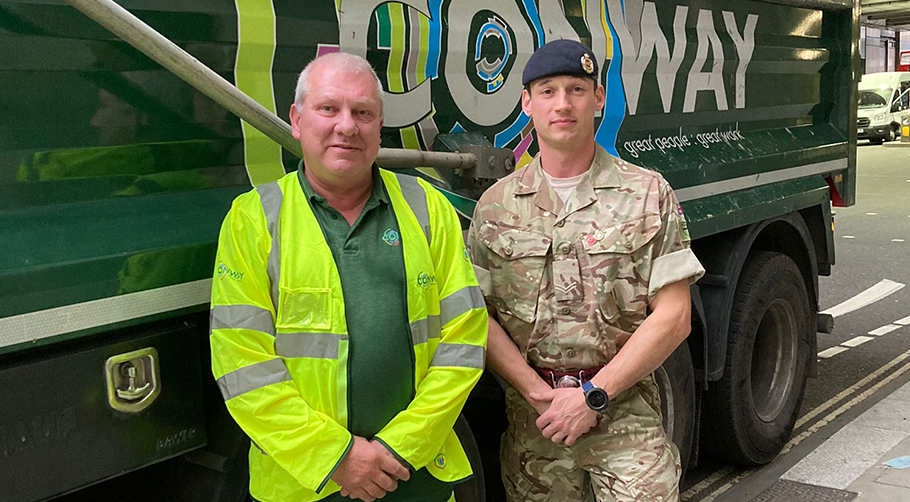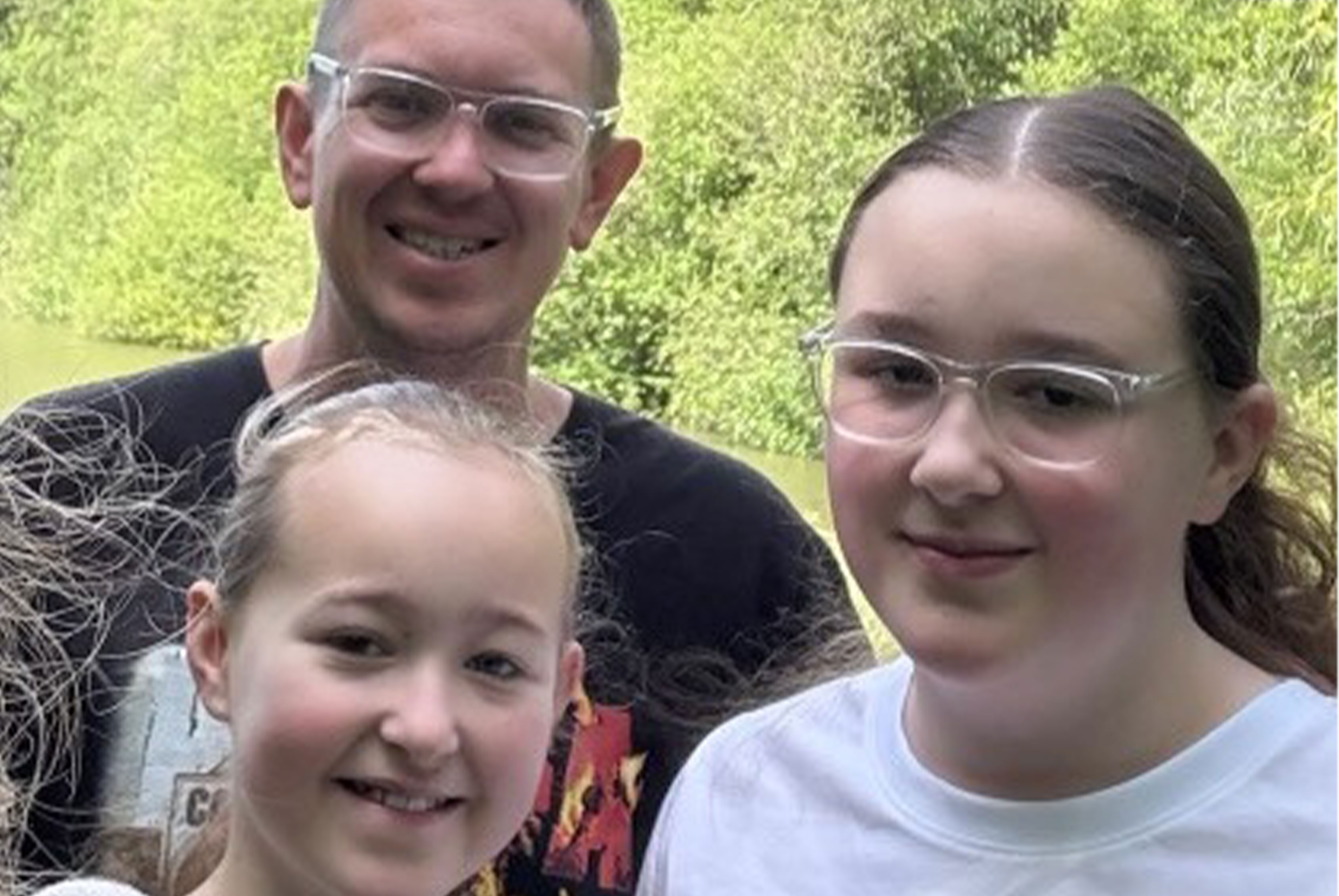
In today's competitive job market, organisations constantly seek talented individuals who bring unique skills and perspectives to their teams. One often overlooked group that holds tremendous potential is Veterans and Reservists.

For National Inclusion Week, we sat down with Matthew Chapman, Infrastructure Manager in our IT Department, to hear about his journey with neurodiversity, his experiences as a parent, and how inclusion has shaped both his leadership style and personal growth.
Tell us about your role at FM Conway and how neurodiversity has shaped your experience.
I’ve been with FM Conway for 11 years and lead a team of engineers and a project manager. We look after all the backend systems — networking, servers, Wi-Fi — the stuff that keeps everything running. We work very closely as a team, and there’s nothing I enjoy more than meeting up and going through a new system that we’re installing.
My journey with neurodiversity started when my daughter began the process of getting assessed for autism. It’s hereditary, and the more I learned to support her, the more I recognised those traits in myself. I haven’t had a formal diagnosis, but when she started the process, I saw so many similarities. I know I think and behave differently to most people. For example, I find busy environments overwhelming. I’d rather sit in my car at lunch for some quiet time. That’s just how I’m wired.
What challenges have you faced, and what support has helped you thrive?
Sensory environments can be tough. Things like foot tapping, air conditioning flicking on, or background chatter are hard to filter out. I’m also very direct in how I communicate, which some people might misread as bluntness. If you didn’t know me, you might think I’m in a bad mood, but I just want to get things done.
‘Why’ is always something to remember. I want to know why — not because I’m being awkward, but because not understanding the whole picture is something that’s a struggle for me.
Going to new places can also be a challenge. I like to look them up on Google Street View and plan in detail how to get there — that kind of structure helps me. It’s a fast-paced industry, and sometimes that can be overwhelming, but having routine helps a lot.
FM Conway has been incredibly supportive. I’m home-based and travel to sites, and that flexibility has made a huge difference. In some other companies, they focus a lot on the office but forget the bigger picture. The working world in general sometimes focuses on the people you can see and forgets the people who are out of sight.
I’m also part of the Neuroworks Forum, which has been really valuable. It’s helped me feel more connected. I encourage my team to join to understand a bit more about the differences between us and how everyone is different.
How has your experience influenced your role as a parent?
I have two daughters, and one is on the path to diagnosis. She reminds me a lot of myself — avoiding noisy places, having strong interests. Her passion is art, and she’s incredibly talented. I’ve always had strong interests too, such as technology and music. I remember taking old technology out of the bin as a kid and learning how it worked. That led me to becoming a network infrastructure manager. I’ve also got seven or eight guitars within arm’s reach of my desk!
Seeing her enthusiasm helps me understand her better, and it’s something we share, even if our interests are different. Very full-on interests are quite a feature of our autism. When I used to pick her up from school, she’d always be sat on her own. That made me start reading up and attending free evening classes on autism, and that’s when I realised, perhaps that’s the way I am too.
The diagnosis process takes a long time. I looked at this when she was in Year 4. She’s now in Year 9 and we’re still on the waiting list, but that doesn’t mean there aren’t things you can do. Knowing I could access learning materials from my local council and speak to school teachers — it all helps.
What does inclusion mean to you, and what advice would you give to others?
Inclusion is about involving everyone, regardless of their strengths or differences. Everyone has a voice, even if they’re not the loudest. Some of my team might not speak up in meetings, but that doesn’t mean they don’t have something valuable to say.
People think neurodiverse individuals can’t lead or work in demanding environments. That’s just not true. We might approach things differently, but that’s often a strength. You don’t need a piece of paper to tell you how your head works. Understand what helps you, and don’t be afraid to ask for it when you need to.
I think it’s about learning to understand people and putting the time in to know them well. Just because someone is different doesn’t mean they don’t have strengths that could contribute significantly.